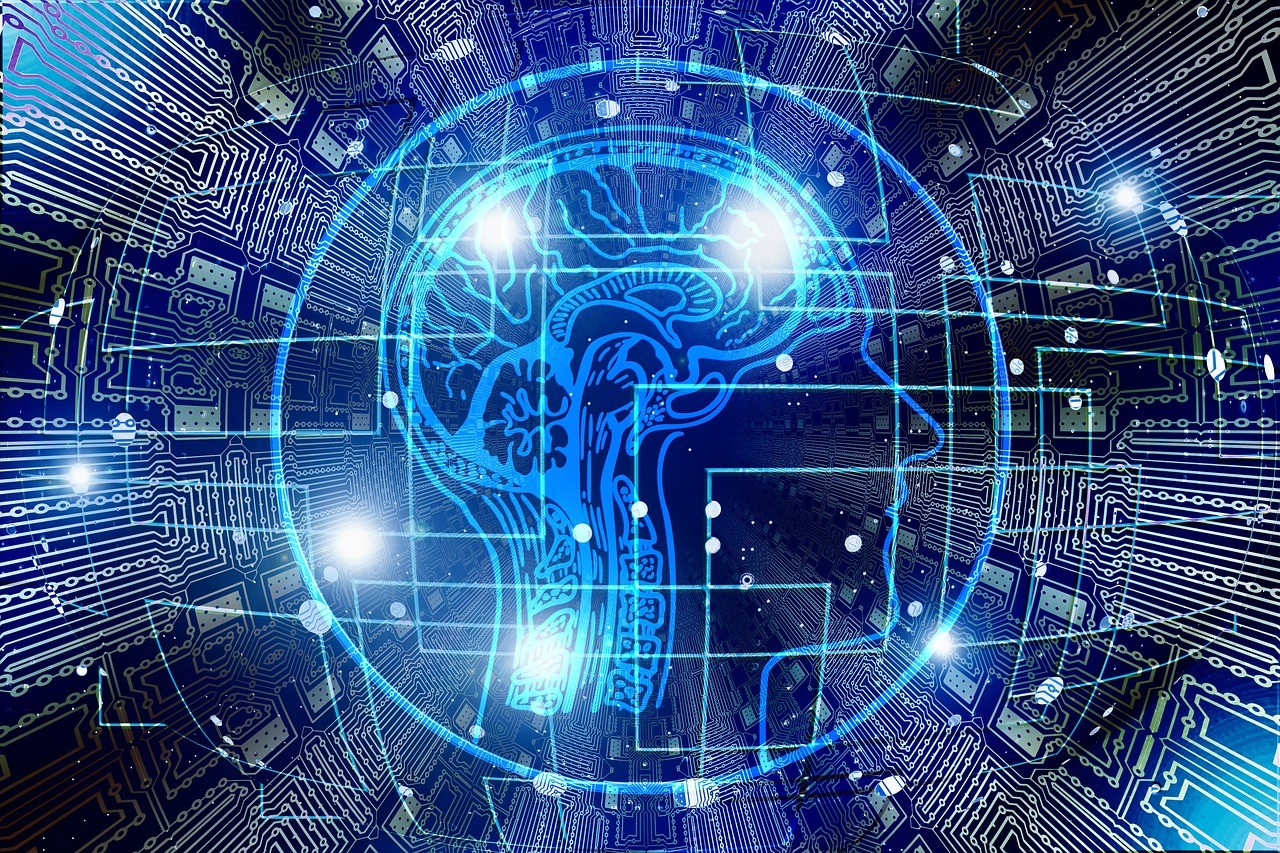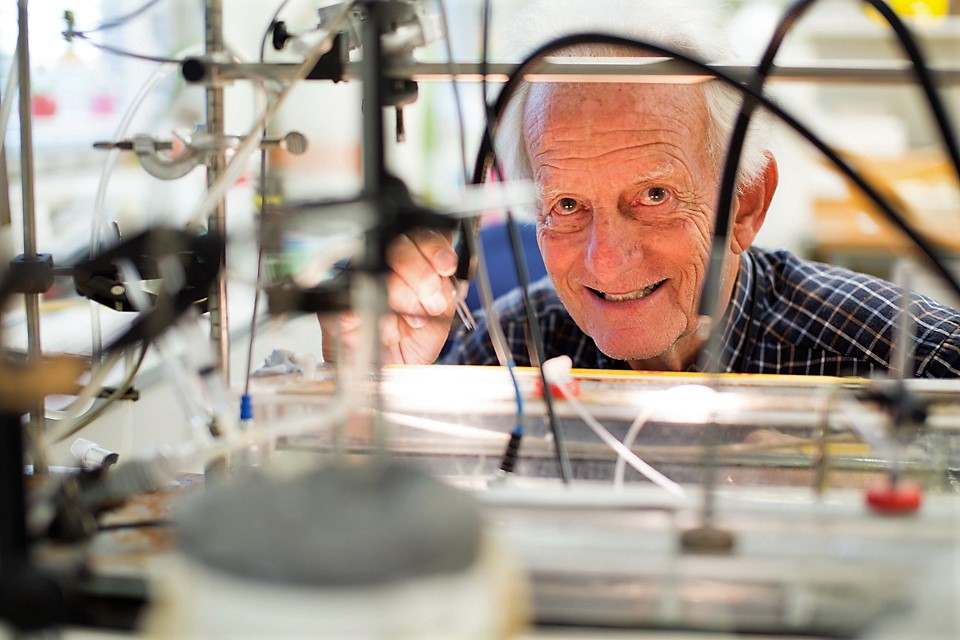
How does our brain deal with technology and modern global challenges?
Is it keeping pace with the speed of contemporary living and the ever-increasing influx of technology-driven input?
Flinders University neuroscience expert Professor Marcello Costa will present his thoughts about how our brains are coping with modern life at the Adelaide Festival of Ideas 2018, being held in Adelaide from July 12-15.
Matthew Flinders Distinguished Professor Costa believes the brain has evolved to do well with most challenges and that we are in good stead to think at a higher level than ever before – but warns that we need more time to process and consider so many inputs.
“I’m not of the belief that technology is a danger or a threat to how we think, or that we have become too complacent by relying on technology to do more of the brain’s work,” says Professor Costa. “But we do have to question whether the development of modern technology is making humans more capable of resolving the deep emotional issues that determine most human choices.
“We have the capability and are very well placed to use technology to take our brain’s capacity to a higher level,” he says.
“There is so much knowledge that we all have access to, but we are not yet using it to full advantage to confront the critical issues that we as a species are facing.”

Professor Costa’s presentation is part of an extensive input by Flinders University academics and researchers to the Adelaide Festival of Ideas program, from July 12 to 15:
- Inclusive education expert Peter Walker will be part of a panel discussion, “L is for Learning”, speaking with University of Texas’s Katie Dawson and author Morris Gleitzman on July 14.
- Dr Rob Manwaring will speak about global political trends in “Does the centre left have a future?” on July 14.
- Professor Alison Kitson will deliver a lecture about “AI and Health” on July 14 – which is a BRAVE Flinders Research and Innovation Lecture, part of a continuing series of Flinders public lectures – while Flinders Medical Device Research Institute rehabilitation engineer David Hobbs will speak at a panel discussion about “AI and Social Interaction” on July 15.
- Space archaeologist Dr Alice Gorman will be talking about the effects of space junk in “The Abandoned Solar System” on July 15.
- Associate Professor Damien Riggs will speak on the impact of medical treatment upon transgender people’s fertility on July 15.
- Flinders PhD candidate in criminology Jeremy Ryder will deliver a presentation of art by prisoners, titled “The Art of Redemption” on July 14.
- Associate Professor Paul Willis will join musician/songwriter Tasha Coates and Jon Jureidini in a panel session addressing “Parent Guilt” on July 15.
- Associate Professor Duncan Taylor, principal scientist of forensic statistics at Forensic Science SA, will present on the importance of learning math on 14 July.
- Dr Tully Barnett, Professor Julian Meyrick and Professor Robert Phiddian, from Laboratory Adelaide at Flinders University, will talk on the real value of culture on 15 July.
Distinguished Flinders alumni are notable for steering the direction of this event, including founder and chairman of the Adelaide Festival of Ideas Greg Mackie OAM; the festival dedication recipient Robyn Archer AO, delivering the keynote address “Freedom and democracy: Observations of a freelance artist” on July 12 in Adelaide Town Hall; and Sarah Gun, founder and director of GOGO Events, who has been part of the Flinders’ Venture Dorm Pre-Accelerator Program, taking part in a panel discussion about “The 3Ps of social enterprise: purpose, passion and people” on July 13.
Neurophysiologist Professor Marcello Costa’s presentation – “A neuroscientist’s view of homo sapiens and its world” – will be delivered at the Joe Verco Room at the Adelaide Health and Medical Sciences (AHMS) Building, North Terrace, Adelaide, at 3pm on July 14.
Professor Costa argues that the sum of our thinking – the combined influence of technology and our ability to interact with community that leads to our superior problem solving ability – is highly sophisticated, using the analogy that the architecture of our brain is like a multi-storey building. “We have five entrances that receive different stimuli, but only one exit,” he says.
“There is decision-making and responsibilities happening constantly at all levels of our brain, simultaneously responding to immediate events, such as removing a burning finger from heat, along with sublime intellectual and emotional considerations. The interconnectivity within the building is truly fantastic, but our challenge is how we send messages to others, because there is no telepathic communications with other buildings.”
Professor Costa remains concerned that the speed with which modern people react does not allow for proper discourse – and this could be a danger.
“Considered thinking requires time, not just instinct, and that is what we must embrace if we are to maximise the potential of our brain capacity – rather than just make instantaneous, speedy responses.”
He points to the effect of our cultural brain – to process and consider morality, spirituality and beliefs into our decision-making process – is what makes our thinking so complex, and that our thinking patterns go beyond rationality to absorb myriad influences and inputs.
“Our thinking is no longer based on mythical or assumed ideas. There is a vast amount of evidence and knowledge available that we can base our thinking on, but therefore we have to process so much more. It’s possible – our brains certainly have the capability, and we are well placed to handle it – but it does require time
“At every step of humanity, with the advent of new discoveries, there is the capacity for humans to become ever more lazy, but at this time I see that technology is helping us to extend ourselves,” Professor Costa says.

